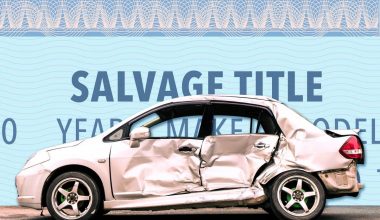When safeguarding your vehicles, many are familiar with insurance coverage. However, it is important to understand the different types of coverage available and what they entail. One such coverage option is comprehensive coverage. You might be wondering what it means. Not to worry, we’ve got you covered! Here, we detail what comprehensive coverage is, what it covers, especially car and business insurance, and the benefits. Interesting, huh? So, continue reading to get more detailed information!
What Is A Comprehensive Coverage?
Comprehensive coverage is a type of auto insurance that provides protection against damage to your car that occurs outside of a collision. This coverage is optional and typically covers incidents such as theft, vandalism, fire, falling objects, and weather-related damage. It provides comprehensive protection for your vehicle by covering potential risks.
Comprehensive coverage is particularly beneficial for those who own newer or more expensive vehicles, as it helps safeguard against significant financial losses in the event of unforeseen damages. In addition to providing coverage for non-collision incidents, comprehensive insurance also includes coverage for glass repairs and replacement.
While it is optional, comprehensive insurance offers peace of mind and reassurance that you are financially protected against various types of damage that may occur outside of your control.
Comprehensive Coverage In Car Insurance
Comprehensive coverage is an essential component of car insurance that protects a wide range of risks and events that may damage or destroy your vehicle. Unlike collision coverage, which only covers damage caused by accidents with other vehicles, comprehensive coverage extends to incidents such as theft, vandalism, natural disasters, and even falling objects. This type of coverage is valuable for individuals who live in areas with high crime rates or frequent severe weather conditions.
One of the main advantages of comprehensive coverage is its ability to provide financial peace of mind in unexpected situations. For example, if your car is stolen, comprehensive insurance will reimburse you for the value of the vehicle, helping you avoid a significant financial loss. Similarly, if your car gets damaged due to a hailstorm or a tree branch fell on it, comprehensive insurance will pay for the necessary repairs for the vehicle’s value if it is deemed a total loss. This level of protection not only promotes confidence in vehicle ownership but also allows drivers to focus on other aspects of their lives without the constant worry of potential unforeseen expenses.
Comprehensive Coverage In Business
Comprehensive coverage in business refers to a type of insurance policy that protects a wide range of risks and losses. This coverage is essential for companies as it offers financial security and peace of mind in case of unexpected events or disasters. With comprehensive coverage, businesses can safeguard their assets. This includes buildings, equipment, and inventory, from damages caused by fire, theft, natural disasters, and other perils.
Moreover, comprehensive coverage extends beyond property protection and also includes coverage for liability, business interruption, and employee-related risks. Liability coverage protects businesses against claims made by third parties for bodily injury or property damage caused by business operations. Business interruption coverage compensates for lost income and additional expenses incurred when a business is temporarily unable to operate due to a covered event, such as fire or flood.
Additionally, comprehensive coverage may include insurance for workers’ compensation, i.e. benefits to employees who suffer work-related injuries or illnesses. By obtaining comprehensive coverage, businesses can mitigate financial losses and ensure the continuity of their operations even in adverse circumstances.
Does Comprehensive Mean Full Coverage?
Comprehensive does not necessarily mean full coverage. While the word comprehensive is often associated with being thorough and complete, in the context of insurance or coverage plans, it has different meanings. In insurance terms, comprehensive coverage is protection against damage or loss caused by events other than collisions.
This typically includes coverage for theft, vandalism, natural disasters, falling objects, and fire. However, it does not provide coverage for accidents or collisions. So, while comprehensive coverage can offer extensive protection, it does not encompass all possible risks people or their assets may face.
Is Full Coverage Better?
When it comes to car insurance, many people wonder if having full coverage is better than having just the minimum required coverage. The answer to this question depends on individual circumstances and preferences. Full insurance typically includes liability insurance, which covers damages to third parties, and comprehensive and collision coverage, which covers damages to your car.
One advantage of having full coverage is that it provides you with more protection in the event of an accident. With liability insurance alone, you would be responsible for paying for damages to your vehicle. However, with full coverage, your insurance company would help cover the cost of repairs or replacement. This can be especially beneficial if you have a new or expensive car that would be costly to repair. Additionally, full coverage can also provide peace of mind knowing that you have a comprehensive safety net in case of any unforeseen circumstances.
On the other hand, full coverage insurance tends to be more expensive. The higher premiums can add up over time and may not be worth it if you have an older or less valuable vehicle. In these cases, it might be more cost-effective to opt for liability insurance, which covers damages to other parties involved in an accident. Ultimately, having full coverage depends on your budget.
How Do You Use Full Coverage?
Full coverage is a type of insurance policy that provides a comprehensive range of protection for various risks or damages. To use full coverage, there are several key aspects to consider.
- Firstly, understand what the policy covers. This can include damage to the insured’s property, such as their vehicle or home, and liability coverage for bodily injury or property damage caused to others.
- In case of an accident, the insured should promptly report the incident to their insurance provider and provide any necessary documentation or evidence to support their claim. This may include police reports, photographs, or witness statements.
By following the correct procedure and supplying all information, you’ll receive the appropriate compensation for your losses, as per the terms of their full coverage policy.
What Are The Benefits Of Comprehensive Insurance?
Comprehensive insurance provides many benefits that can help protect both your vehicle and financial well-being. However, here are some of the advantages of comprehensive insurance:
#1. Coverage For Non-collision Events
Unlike collision insurance, comprehensive insurance provides damages not caused by a collision. This includes damage caused by theft, vandalism, natural disasters, falling objects, fire, or civil disturbances. By having comprehensive insurance, you can rest assured knowing it will protect you against potential risks.
#2. Vehicle Protection
Comprehensive insurance provides coverage for the repair or replacement of your vehicle if it is damaged due to any of the events mentioned above. This can save you from incurring substantial out-of-pocket expenses and help you get back on the road quickly.
#3. Financial Security
Having comprehensive insurance gives financial security in case of a major loss. If your vehicle is stolen or damaged beyond repair, comprehensive insurance can cover the cost of a new car or reimburse you for the current market value of your vehicle. This can be particularly beneficial if you have a high-value or expensive vehicle.
#4. Peace Of Mind
Knowing you have comprehensive insurance can give you peace of mind. Whether it’s a severe storm or an act of vandalism, you can drive or park your vehicle with confidence, knowing that you have coverage for any unexpected event.
#5. Lender Requirements
If you finance or lease a vehicle, lenders or leasing firms usually require comprehensive insurance. They want to protect their investment and ensure the vehicle has coverage. By having comprehensive insurance, you can comply with the lender’s requirements and protect both yourself and the lender’s interests.
#6. Additional Coverage Options
Comprehensive insurance often includes additional coverage options such as windshield repair or replacement. This can be a valuable benefit as windshields are prone to damage from road debris, weather conditions, and accidents.
What Are The Disadvantages Of Full Coverage?
One of the main disadvantages of full coverage is the cost. Full coverage insurance is more expensive than basic liability insurance due to the coverage it provides.
Another disadvantage is the potential for higher deductibles. Full coverage insurance usually requires higher deductibles. That’s the amount you must pay out of pocket before your insurance coverage kicks in.
What Is The Collision Coverage?
Collision coverage is an auto insurance coverage that helps pay for any damages to your vehicle that occur as a result of a collision with another car or object. This coverage is typically optional and allows you to file a claim with your insurance company to receive compensation for repairs or replacement costs.
Additionally, collision coverage helps protect you financially if an accident happens. It ensures you don’t have to bear the full cost of repairs or purchasing a new vehicle out of pocket. For more information click here collision insurance.
What Is Opposite Of Full Coverage?
The opposite of full coverage is liability-only insurance, which pays for injury and damage to others you’re responsible for.
Does It Make Sense To Have Full Coverage Insurance?
Having full coverage insurance can be a wise decision for many people. Full coverage insurance typically includes comprehensive, collision, and liability coverage. It can also protect against costly medical expenses arising from accidents.
For instance, if an accident occurs, the coverage will cover the damages to the other party and also the damages to your vehicle. So, while full coverage insurance may carry a higher premium than liability-only coverage, it can provide comprehensive protection in case of unforeseen circumstances.
Ultimately, the decision to have full coverage insurance depends on your circumstances, including your budget, vehicle value, and risk tolerance.
Wrapping Up
Comprehensive coverage offers vast protection for vehicles beyond other types of insurance. By including this coverage in your policy, you can enjoy financial security in the face of unexpected events. However, review the terms and conditions to understand the limitations and exclusions associated with comprehensive coverage.
Related Articles
- PROGRESSIVE BUSINESS INSURANCE: 2023 Reviews
- DISABILITY INCOME INSURANCE: Meaning, Group, Applicant, Policy & Benefits






